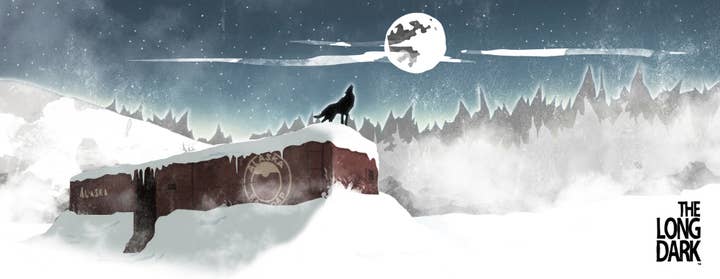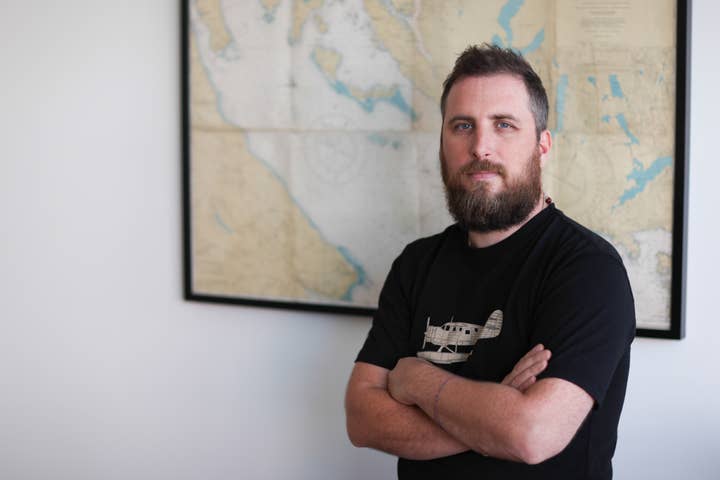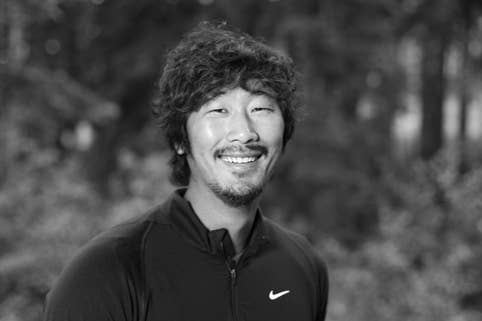Game development the "humane way"
New start up full of ex-AAA developers embraces different approach to game creation, eschews AAA's crunch time "badge of honor"
As a game artist, Hokyo Lim has an impeccable resume. A decade ago, he broke into the gaming industry with Sucker Punch Productions, working on the first three installments of the stylishly cel-shaded Sly Cooper series of games. More recently, Lim served as art director for Riot Games' phenomenally successful League of Legends, and then jumped to Giant Sparrow to fill the same role on the visually striking and critically acclaimed PSN game The Unfinished Swan.
Despite the string of successes, Lim's had a sort of developmental wanderlust, moving from studio to studio. Speaking with GamesIndustry International, Lim explained his desire to keep changing his scenery.
"We only live once, and there's not much time... I don't want to be stuck in just one area for a long time; I just want to make a lot of cool games during my career."
Hokyo Lim
"We only live once, and there's not much time," Lim said. "I like to explore what's out there working with many different, cool, people, and really just challenge what I can do, push my limit, get inspired and just creating the new styles. I don't want to be stuck in just one area for a long time; I just want to make a lot of cool games during my career."
Lim's latest project is The Long Dark from Vancouver Island-based start-up Hinterland Games. The post-disaster survival simulator is being partly crowdfunded, with a Kickstarter campaign for the game launching earlier this week. While Lim could have found a project with more predictable funding, Hinterland founder and creative director Raphael van Lierop made a compelling case for his new art director.
"The team he was putting together was an amazing team," Lim said. "Everyone was very professional, and just made me very comfortable. I trusted my instinct and I wanted to work with this team. It's just a feeling, and I thought the content was pretty interesting as well."

It probably didn't hurt that Lim wouldn't need to uproot himself to work on the game. While van Lierop is based on Vancouver Island, the development team is spread throughout Canada, with members in Los Angeles and Chicago as well. Van Lierop has several years of experience in virtual collaboration (including serving as a remote creative director for CI Games' Enemy Front), and he's well aware of the challenges it poses.
"I don't think every team can do it, but I think this team is exceptional in how focused and professional everyone is," van Lierop said. "Everyone's a veteran. Everyone's been around the block a bunch of times and we can all speak the same language because we come from a common background. Even though we haven't all worked together before, we have a lot of shared war stories that kind of bind us together and we have a common vision in what we want to create with Hinterland and The Long Dark."
"[P]eople almost... wear it like a badge of honor. 'Oh yeah, I put in 120 hours last week and I didn't see my family because I was at the office the whole time.' Personally, I find it an empty, silly way of measuring anything."
Raphael van Lierop
The Hinterland team still gets together every couple months for three to five days for more direct communication and team-building, but van Lierop said the benefits of having people in the same physical location have been greatly overstated in the industry. The bond that creates success is forged in a short period of time through meaningful interactions, he said, not through endless hours stuck in an office building eating pizza during crunch time.
"It's become part of the culture of game development," van Lierop said, "and people almost promote that or wear it like a badge of honor. 'Oh yeah, I put in 120 hours last week and I didn't see my family because I was at the office the whole time.' Personally, I find it an empty, silly way of measuring anything. I don't think hours in your chair equates to dedication or professionalism or output."
The Long Dark development team has a lengthy history working on high-profile AAA titles, but Hinterland seems set up to deliberately contrast with their previous experience. Van Lierop has been trying to make Hinterland a studio that adapts to its talent rather than the other way around.
"A bunch of people on the team have children and the way we're working now is a much more humane way, in my opinion, of approaching this work," van Lierop said. "We certainly aren't putting any fewer hours into the studio than we would if we were in a traditional AAA development environment. But we're putting the hours in when we want to put them in, so you can account for those periods of the day when you want to take your kid to swimming lessons, or you have errands to run. There's not that constant pressure you get in the high stakes AAA environment where you feel that every time you step out of the office, you're letting people down and it's just not a positive thing.
"It sounds like semantics, but it's putting the choice in the developer's hands. We'll all choose to pour our hearts and souls, hours and hours of our lives into work that we feel passionate about. And when we don't feel passionate about it for whatever reason--the projects aren't interesting, the work conditions aren't fair, whatever the situation might be--that's when things start to fall apart. We all want to make great things. We all want to be passionate. We're creative people; we want to work hard. This isn't about working less hard or anything like that. It's trying to acknowledge that to be really successful at this caliber of development in the industry takes an amazing amount of focus and dedication, but we all want to have lives outside of that."
Van Lierop has been able to assemble his team of AAA developers in part because their motivations have changed as they've gotten older and more experienced. He said many young developers sign on for AAA studios because they aspire to work on the big franchise they grew up loving, to be associated with the critically acclaimed blockbusters every gamer knows.

"Then when you have some experience under your belt, you start to get some of those credits, you realize that feeling is not really fulfilling," van Lierop said. "That's not really why you're doing it. It's not about having those credits. It's about making games that you feel really proud of. For all of us at Hinterland, we're all at that point in our careers where that external validation that you look for from critics and being associated with huge brands is shifted more towards looking for more personal validation. Is the work fulfilling? Do I feel proud of what I'm making? Do I feel like what I'm making is going to have some lasting meaning? I don't want to sound too artsy fartsy about it, but that was a huge part of the motivation behind starting Hinterland and The Long Dark. It was about saying what game would I make if I had the choice?"
For Lim, the motivation is in part the process of making something from nothing. It's not just why he got into making games; it's why he's actively sought out start-ups like Riot Games and Giant Sparrow.
"I like to help not just the art, but creating a culture and a team model, just being involved and helping to make a successful company," Lim said. "That is one of the reasons I joined this company instead of one that's been made for 10 years or 20 years."
Of course, once The Long Dark is done, Hinterland won't be a start-up any longer, and Lim may be moving on once more.
"My journey will not stop, and my timeline now is I'm with Hinterland and I'd like to help and contribute wherever I can to this project," Lim said. "It's not just because they're professional. There are a lot of professional people out there I want to work with. It's just they're more genuine, and I think they're very kind. That's what made me want to work with these guys and the team. But in the future, yes, I may start up my own [studio] or move on or something. Who knows? But I won't stop, for sure."

